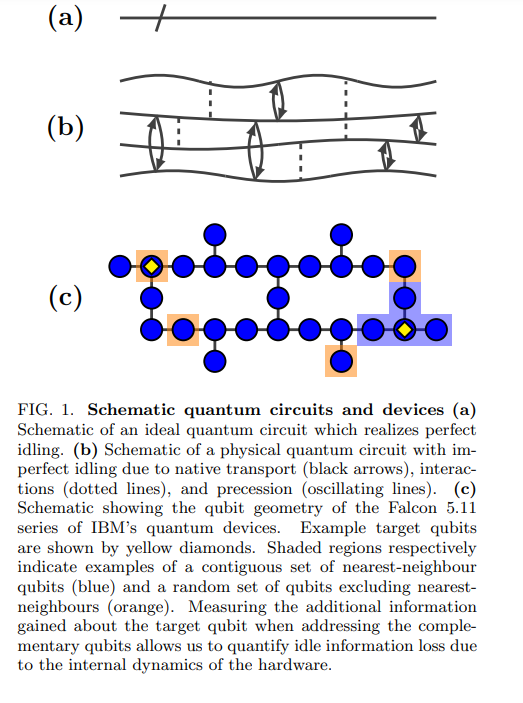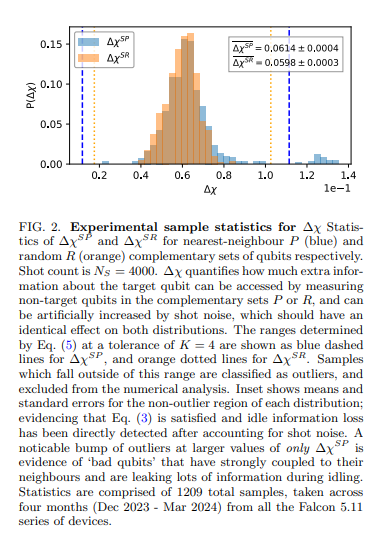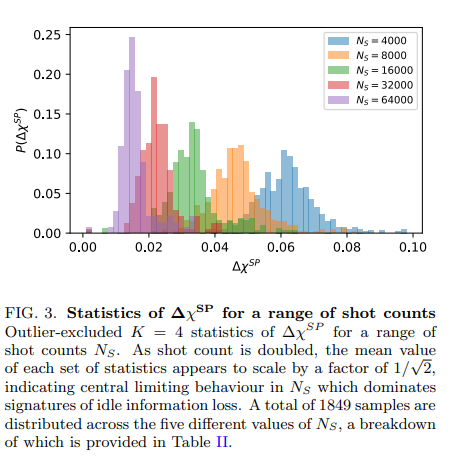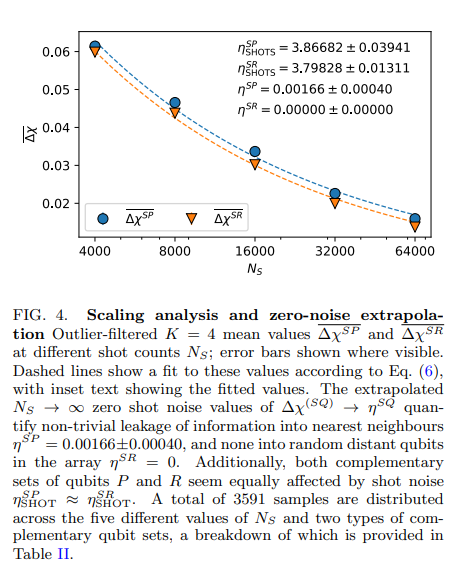Can Quantum Computers Do Nothing?
2024-06-24 10:15
1085 浏览
Quantum computing platforms are subject to contradictory engineering requirements: qubits
must be protected from mutual interactions when idling (‘doing nothing’), and strongly interacting when in operation. If idling qubits are not sufficiently protected, information can ‘leak’ into
neighbouring qubits, become non-locally distributed, and ultimately inaccessible. Candidate solutions to this dilemma include patterning-enhanced many-body localization, dynamical decoupling,
and active error correction. However, no information-theoretic protocol exists to actually quantify
this information loss due to internal dynamics in a similar way to e.g. SPAM errors or dephasing
times. In this work, we develop a scalable, flexible, device non-specific protocol for quantifying this
bitwise idle information loss based on the exploitation of tools from quantum information theory.
We implement this protocol in over 3500 experiments carried out across 4 months (Dec 2023 - Mar
2024) on IBM’s entire Falcon 5.11 series of processors. After accounting for other sources of error,
and extrapolating results via a scaling analysis in shot count to zero shot noise, we detect idle
information leakage to a high degree of statistical significance. This work thus provides a firm quantitative foundation from which the protection-operation dilemma can be investigated and ultimately
resolved.








Article:https://arxiv.org/abs/2406.16861
